Intuitive textile ERP software for efficientplanning and managementWe’ll help you achieve your business & management goal.
Don't wanna be here? Send us removal request.
Text
Top D2C Ad Agencies: Performance Marketing Experts for Facebook & Google
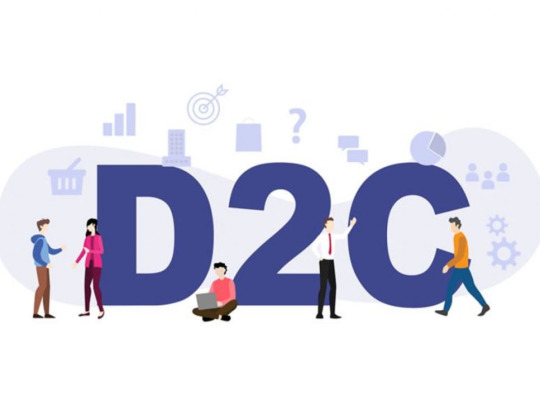
Direct-to-Consumer (D2C) brands have revolutionized the way businesses interact with customers. With the rapid growth of e-commerce and digital marketing, the need for specialized ad agencies that understand the intricacies of performance marketing on platforms like Facebook and Google has never been greater. But with so many options out there, how do you know which D2C ad agency is the right fit for your brand? This article dives into the top D2C ad agencies that excel in performance marketing, specifically on Facebook and Google.
The digital marketplace is crowded, with brands vying for the attention of consumers who are bombarded with ads every day. This is where Direct-to-Consumer (D2C) ad agencies come in. These agencies are tailored to help brands that sell directly to their customers without the need for a middleman. Whether you're a startup or a well-established brand, the right D2C ad agency can be the key to unlocking higher conversion rates and better customer engagement.

What is a D2C Ad Agency?
A D2C ad agency is a specialized marketing agency that focuses on helping brands market and sell their products directly to consumers. Unlike traditional ad agencies, which may focus on a broad range of industries, D2C ad agencies are experts in the nuances of digital marketing for e-commerce brands. They understand the importance of building a direct relationship with customers and are adept at leveraging digital channels like Facebook, Instagram, and Google to drive sales.
Why D2C Brands Need Specialized Ad Agencies
D2C brands operate in a unique space where the competition is fierce, and the margin for error is slim. Unlike traditional retail, where customers can physically interact with products, D2C brands must rely on digital platforms to convey their value proposition. This makes performance marketing crucial. A specialized D2C ad agency understands the specific challenges these brands face and has the expertise to create campaigns that not only attract attention but also drive conversions.
Key Benefits of a Specialized D2C Ad Agency:
Targeted Campaigns: Expertise in creating highly targeted campaigns that resonate with the D2C audience.
Data-Driven Strategies: Utilization of data and analytics to optimize ad spend and maximize ROI.
Platform Expertise: Deep understanding of how to leverage specific platforms like Facebook and Google to their full potential.
Understanding Performance Marketing for D2C
Performance marketing is a digital marketing strategy that focuses on achieving specific actions, such as clicks, leads, or sales. For D2C brands, this approach is particularly effective because it allows them to track and optimize their marketing efforts in real time. Performance marketing is often associated with pay-per-click (PPC) advertising on platforms like Facebook and Google, where brands pay only when a user takes a desired action.
Why Performance Marketing Matters:
Measurable Results: Unlike traditional marketing, performance marketing provides clear metrics that show how well a campaign is performing.
Cost-Effective: Brands can control their budget by paying only for successful interactions.
Scalability: Campaigns can be easily scaled up or down based on performance, making it ideal for brands of all sizes.
Top D2C Ad Agencies for Facebook
When it comes to Facebook advertising, certain D2C ad agencies stand out for their ability to create compelling, high-converting campaigns. These agencies are experts in leveraging Facebook's powerful targeting capabilities to reach the right audience at the right time.
1. Agency A: Pioneers in Facebook Ad Campaigns
Specialization: Focuses exclusively on Facebook ads for D2C brands.
Strengths: Advanced targeting strategies, creative ad development, and continuous optimization.
Success Story: Helped a D2C fashion brand achieve a 3x return on ad spend (ROAS) through a combination of dynamic ads and retargeting campaigns.
2. Agency B: The Innovators
Specialization: Known for their innovative approach to Facebook advertising, utilizing video ads and interactive content to engage audiences.
Strengths: Creative storytelling, audience segmentation, and data-driven insights.
Success Story: Assisted a D2C skincare brand in increasing their customer acquisition by 50% through personalized video ad campaigns.
Top D2C Ad Agencies for Google
Google advertising requires a different set of skills compared to Facebook, particularly in search engine marketing (SEM) and Google Shopping campaigns. The following agencies are known for their expertise in maximizing ROI through Google ads.
1. Agency C: The Google Ad Gurus
Specialization: Experts in Google Search and Shopping campaigns for D2C brands.
Strengths: Keyword optimization, product feed management, and conversion tracking.
Success Story: Boosted a D2C electronics brand's online sales by 40% through targeted Google Shopping ads.
2. Agency D: Masters of SEM
Specialization: Focuses on search engine marketing (SEM) with a proven track record in driving high-quality traffic to D2C websites.
Strengths: Competitive keyword bidding, ad copywriting, and landing page optimization.
Success Story: Enhanced a D2C home goods brand's search visibility, leading to a 30% increase in sales over six months.
Criteria for Choosing the Right D2C Ad Agency
Selecting the right D2C ad agency is crucial for your brand’s success. Not all agencies are created equal, and the wrong choice could lead to wasted budget and missed opportunities. Here are some key factors to consider when choosing a D2C ad agency:
1. Experience with D2C Brands
Look for agencies with a proven track record of working with D2C brands. They should understand the unique challenges and opportunities within the D2C space.
2. Platform Expertise
Ensure the agency has deep expertise in the platforms you want to focus on, whether it's Facebook, Google, or both.
3. Data-Driven Approach
A good agency should be able to provide detailed analytics and use data to drive decisions, ensuring that every dollar spent is optimized for maximum return.
4. Creative Capabilities
The agency should have strong creative skills, with the ability to produce compelling ads that resonate with your target audience.
5. Client Testimonials and Case Studies
Review the agency’s past work through client testimonials and case studies to see if they have delivered results for brands similar to yours.
Case Studies: Success Stories from Top D2C Ad Agencies
To give you a better idea of what top D2C ad agencies can achieve, here are a few success stories:
Case Study 1: Agency A’s Success with a D2C Fashion Brand
Agency A worked with a D2C fashion brand to revamp their Facebook ad strategy. By focusing on dynamic ads and retargeting, they were able to triple the brand’s ROAS, leading to a significant increase in revenue.
Case Study 2: Agency C’s Google Shopping Triumph
Agency C helped a D2C electronics brand optimize their Google Shopping campaigns, resulting in a 40% increase in online sales. Their success was driven by meticulous product feed management and targeted bidding strategies.
What to Expect from a D2C Performance Marketing Agency
When you partner with a D2C performance marketing agency, you can expect a comprehensive approach to your digital marketing strategy. Here’s what typically comes with the package:
1. Initial Consultation and Strategy Development
The agency will start by understanding your brand, goals, and target audience. They will then develop a customized strategy tailored to your needs.
2. Ad Creation and Optimization
The agency will handle the creation of ads, ensuring they are visually appealing and effective. They will also continuously monitor and optimize the ads based on performance.
3. Analytics and Reporting
Regular reports will be provided to track the success of your campaigns, with insights on what’s working and what needs adjustment.
4. Ongoing Support
A good agency will offer ongoing support to ensure your campaigns continue to perform well, making adjustments as needed to stay ahead of the competition.
The Future of D2C Performance Marketing
As technology evolves, so too will the strategies used by D2C performance marketing agencies. Here’s what the future might hold:
1. Greater Use of AI and Machine Learning
AI will play a larger role in optimizing ad campaigns, from audience targeting to ad creation.
2. Increased Focus on Personalization
Personalized ads will become even more important as consumers expect brands to cater to their individual preferences.
3. Expansion into New Platforms
While Facebook and Google are dominant, we may see D2C brands exploring newer platforms like TikTok and emerging social media channels.
Common Mistakes to Avoid When Choosing a D2C Ad Agency
1. Focusing Solely on Cost
While budget is important, choosing an agency based solely on cost can lead to subpar results. Look for value rather than the cheapest option.
2. Overlooking the Importance of Experience
An agency that doesn’t understand the D2C landscape can waste valuable time and resources. Ensure the agency has relevant experience.
3. Ignoring Client Reviews
Client reviews and testimonials provide valuable insights into an agency’s reliability and effectiveness. Don’t skip this step in your decision-making process.
FAQs
1. What is a D2C ad agency?
A D2C ad agency specializes in marketing for Direct-to-Consumer brands, helping them reach their target audience directly through digital platforms like Facebook and Google.
2. How can a D2C ad agency improve my brand’s performance?
A D2C ad agency uses targeted campaigns, data-driven strategies, and platform expertise to increase your brand’s visibility, engagement, and sales.
3. What makes performance marketing crucial for D2C brands?
Performance marketing allows D2C brands to measure and optimize their campaigns in real-time, ensuring they only pay for successful actions like clicks or sales.
4. How do I choose the right D2C ad agency for my brand?
Look for an agency with experience in your industry, expertise in your desired platforms, and a data-driven approach. Client testimonials and case studies can also guide your decision.
5. What should I expect from a D2C performance marketing agency?
Expect a customized strategy, ad creation and optimization, detailed analytics, and ongoing support to ensure your campaigns achieve the best possible results.
0 notes
Text
Unleash the Power of a Facebook and Google Ad Agency for D2C Performance Marketing

In today's competitive digital landscape, Direct-to-Consumer (D2C) brands are continuously searching for the best ways to reach their target audience. One of the most effective methods to achieve this is through performance marketing. But where do you start? This is where a specialized D2C ad agency steps in. Particularly, leveraging the power of Facebook and Google ad agencies can significantly elevate your brand's performance marketing efforts. But how can you make the most out of these platforms? Let’s dive into the strategies that can help your D2C brand thrive.
Direct-to-Consumer (D2C) marketing has redefined the way brands connect with customers. Unlike traditional retail, where intermediaries play a crucial role, D2C allows brands to sell directly to consumers. This direct approach is not just about selling products; it's about building a lasting relationship with the customer. But to thrive in this space, performance marketing is key.
Performance marketing is all about achieving measurable results. Whether it’s clicks, sales, or leads, every action is tracked, and every penny is accounted for. This is where Facebook and Google ads come into play. Both platforms offer powerful tools to reach potential customers, but using them effectively requires expertise—something a D2C performance marketing agency can provide.
What is a D2C Ad Agency?
A D2C ad agency is a specialized agency that focuses on helping brands sell directly to consumers. Unlike traditional ad agencies, which might cater to a broad range of businesses, D2C agencies understand the unique challenges and opportunities in the D2C space. They know that the key to success lies in understanding the customer journey, from awareness to conversion.
Services Provided by a D2C Ad Agency
Targeted Advertising: They create highly targeted ads that resonate with specific demographics.
Data-Driven Decisions: These agencies use data to optimize campaigns in real-time.
Creative Content: Engaging and relevant content is at the core of any successful D2C campaign.
Why Facebook Ads are Essential for D2C Brands
Facebook is not just a social media platform; it’s a powerful advertising tool with over 2.8 billion monthly active users. For D2C brands, Facebook offers unparalleled targeting options. You can target users based on their interests, behaviors, and even life events.
Benefits of Facebook Ads for D2C
Custom Audiences: Create audiences based on website visitors, email lists, or app users.
Lookalike Audiences: Reach new people who are similar to your existing customers.
Detailed Analytics: Understand how your ads are performing in real-time.
Harnessing the Power of Google Ads for D2C
Google Ads is another essential tool for D2C performance marketing agencies. While Facebook ads are great for awareness and engagement, Google Ads excel in intent-based marketing. When someone searches for a product on Google, they are often ready to buy, making it an excellent platform for D2C brands.
Benefits of Google Ads for D2C
Search Ads: Appear at the top of Google search results when users search for relevant keywords.
Display Ads: Reach users as they browse websites, watch YouTube videos, or use apps.
Shopping Ads: Showcase your products directly in Google’s search results.
Facebook vs. Google: Which is Better for D2C?
Both Facebook and Google ads offer unique benefits for D2C brands. But which one should you choose? The answer often depends on your specific goals.
If your goal is to create awareness and engage with potential customers, Facebook ads might be your best bet.
If you’re looking to drive conversions from users who are actively searching for products like yours, Google Ads could be more effective.
Many successful D2C brands use a combination of both platforms to maximize their reach and conversions.
Key Strategies Used by D2C Performance Marketing Agencies
1. Audience Segmentation
Segmenting your audience allows you to create more personalized and effective ad campaigns. For example, a Facebook ad agency for D2C might create different campaigns for first-time visitors, repeat customers, and those who have abandoned their carts.
2. Retargeting
Retargeting is a powerful strategy where ads are shown to users who have already interacted with your brand. For instance, a Google ad agency for D2C might target users who have visited your website but didn’t make a purchase.
3. A/B Testing
Testing different ad creatives, copy, and landing pages is essential to find out what works best. D2C performance marketing agencies constantly run A/B tests to optimize campaigns.
4. Data-Driven Optimization
By analyzing data, these agencies can make informed decisions to improve campaign performance. This could involve adjusting the budget, changing the target audience, or tweaking the ad copy.
The Role of Analytics in D2C Marketing
Analytics is the backbone of any successful D2C marketing strategy. Without it, you’re essentially flying blind. Performance marketing agencies use advanced analytics tools to track every aspect of your campaign, from click-through rates to conversion rates.
Why Analytics Matter
Measure Success: Understand what’s working and what’s not.
Optimize Campaigns: Make data-driven adjustments to improve performance.
Predict Trends: Use historical data to forecast future performance.
Choosing the Right Ad Agency for Your D2C Brand
Not all ad agencies are created equal, especially when it comes to D2C marketing. It’s crucial to choose an agency that understands the unique challenges of the D2C space.
What to Look for in a D2C Ad Agency
Experience: Look for agencies with a proven track record in D2C marketing.
Expertise: The agency should have in-depth knowledge of both Facebook and Google ads.
Transparency: The agency should provide clear and regular reporting on campaign performance.
The Benefits of Combining Facebook and Google Ads
While Facebook and Google ads each offer unique advantages, combining them can create a powerful synergy. This approach allows you to reach a wider audience and cover all stages of the customer journey.
How to Combine Facebook and Google Ads
Use Facebook for Awareness: Engage users who might not be actively searching for your product but are likely to be interested.
Use Google for Conversions: Target users who are actively searching for products like yours.
Real-Life Success Stories of D2C Brands
Many D2C brands have successfully used Facebook and Google ads to grow their businesses. For example, a skincare brand might use Facebook ads to build brand awareness and Google Ads to drive sales during key shopping periods like Black Friday.
Case Study: A D2C Brand's Success
Consider a D2C fashion brand that struggled to reach its target audience. By partnering with a D2C performance marketing agency, they implemented a strategy that combined Facebook and Google ads. The result? A 300% increase in sales within six months.
Maximizing ROI with a D2C Performance Marketing Agency
Ultimately, the goal of any marketing campaign is to achieve a high return on investment (ROI). A D2C performance marketing agency can help you maximize ROI by using advanced targeting, creative strategies, and data-driven optimization.
Strategies for Maximizing ROI
Focus on High-Value Audiences: Target users who are most likely to convert.
Optimize Ad Spend: Allocate your budget to the most effective channels.
Continuous Improvement: Regularly review and adjust your campaigns to ensure they’re performing at their best.
FAQs on D2C Performance Marketing
1. What is a D2C performance marketing agency?
A D2C performance marketing agency specializes in helping Direct-to-Consumer brands achieve measurable results through targeted advertising on platforms like Facebook and Google.
2. How do Facebook and Google ads differ for D2C marketing?
Facebook ads are great for creating awareness and engaging with users, while Google ads are more effective for driving conversions from users who are actively searching for products.
3. Can I use both Facebook and Google ads for my D2C brand?
Absolutely! Using both platforms allows you to reach a wider audience and cover all stages of the customer journey, from awareness to conversion.
4. How can a D2C ad agency help my brand?
A D2C ad agency can provide expertise in targeting, creative strategy, and data-driven optimization, helping you achieve better results than you might on your own.
5. What should I look for in a D2C performance marketing agency?
Look for an agency with experience in D2C marketing, expertise in both Facebook and Google ads, and a transparent approach to reporting and optimization.
Conclusion: Elevate Your Brand with the Right Ad Agency
In the competitive world of D2C marketing, having the right D2C performance marketing agency by your side can make all the difference. By leveraging the power of Facebook and Google ads, you can reach your target audience more effectively, drive more conversions, and ultimately grow your brand. Whether you’re just starting or looking to scale, the right ad agency can help you unlock your brand's full potential.
0 notes
Text

Why Your D2C Brand Needs a Specialized Paid Ad Agency
Discover 15 surprising reasons why your D2C brand urgently needs a specialized paid ad agency. Unlock hidden benefits, from niche targeting to scalable campaigns, and stay ahead in the competitive digital market.
0 notes
Text

Unlock the top 15 hidden SEO strategies for D2C brands and discover why partnering with a D2C SEO agency is a game-changer. These surprising facts will transform your approach to SEO and skyrocket your brand's visibility.
0 notes
Text
Unlock Explosive Growth: How Our SEO Agency Transforms D2C Brands!

In today's fast-paced digital world, direct-to-consumer (D2C) brands are popping up everywhere, offering unique products and personalized services. But standing out in a crowded market can be tough. That's where our SEO agency steps in. We specialize in transforming D2C brands, taking them from obscurity to the spotlight. Curious about how we do it? Let's dive in and explore the magic behind our success.
Unlocking explosive growth for D2C brands is no small feat. It requires a deep understanding of both the market and the digital landscape. Our SEO agency has perfected the art of transforming D2C brands, leveraging the power of search engine optimization (SEO) to drive visibility, traffic, and sales. In this article, we'll share our insights, strategies, and success stories to show you how SEO can be a game-changer for your D2C brand.
What is SEO and Why It Matters for D2C Brands
Search engine optimization (SEO) is the practice of optimizing your website to rank higher in search engine results pages (SERPs). For D2C brands, SEO is crucial because it helps attract organic traffic, which can lead to increased sales and brand recognition. Think of SEO as a map that guides potential customers to your online store.

Understanding the D2C Model
The D2C model allows brands to sell directly to consumers, bypassing traditional retail channels. This direct relationship with customers provides valuable insights and control over the customer experience. However, it also means that D2C brands need to be highly visible online to reach their audience.
The Role of SEO in D2C Growth
SEO plays a pivotal role in the growth of D2C brands by:
Increasing Visibility: Higher rankings on SERPs mean more exposure.
Driving Traffic: Attracting visitors who are actively searching for products like yours.
Building Trust: Appearing at the top of search results builds credibility.
Boosting Sales: More traffic and trust lead to higher conversion rates.
How Our SEO Agency Works
Our SEO agency follows a comprehensive approach to ensure D2C brands achieve their growth goals. Here's how we do it:
Keyword Research: The Foundation of SEO
We start with thorough keyword research to identify the terms and phrases your target audience is searching for. This step is crucial because it forms the foundation of our entire SEO strategy. We use advanced tools and techniques to find the best keywords that will drive traffic and conversions.
On-Page SEO: Optimizing Your Website
Next, we focus on on-page SEO, which involves optimizing various elements of your website, including:
Title Tags and Meta Descriptions: Crafting compelling and keyword-rich titles and descriptions.
Headers: Using proper header tags (H1, H2, H3) to structure your content.
Content: Ensuring your content is high-quality, relevant, and includes target keywords.
Internal Links: Creating a logical structure with internal links to keep visitors engaged.
Off-Page SEO: Building Authority
Off-page SEO involves activities outside your website that enhance its credibility and authority. This includes:
Backlink Building: Acquiring links from reputable websites to boost your site's authority.
Social Media Marketing: Leveraging social platforms to drive traffic and engagement.
Guest Blogging: Writing articles for other websites to gain exposure and backlinks.
Content Strategy: Engaging Your Audience
Content is king, and our SEO agency ensures your content strategy is top-notch. We create a variety of content types, including:
Blog Posts: Informative and engaging articles that attract and retain visitors.
Product Descriptions: Compelling descriptions that highlight the benefits of your products.
Videos and Infographics: Visual content that enhances engagement and shareability.
Technical SEO: Ensuring a Smooth Experience
Technical SEO focuses on the backend of your website to ensure it's running smoothly and efficiently. This includes:
Site Speed Optimization: Ensuring your site loads quickly to prevent visitor drop-off.
Mobile Optimization: Making sure your site is mobile-friendly for users on all devices.
XML Sitemaps: Creating sitemaps to help search engines index your site.
Case Studies: Success Stories
We've helped numerous D2C brands achieve remarkable growth through our SEO strategies. Here are a few success stories:
Brand A: From Obscurity to Popularity
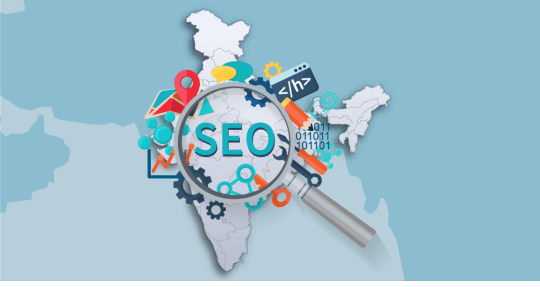
Brand A was struggling to gain traction in a competitive market. After implementing our SEO strategies, their website traffic increased by 150%, and their sales doubled within six months.
Brand B: Dominating the Search Results
Brand B wanted to dominate their niche. Our targeted keyword strategy and content marketing efforts resulted in a 200% increase in organic search traffic, positioning them as a market leader.
Measuring Success: Analytics and Reporting
We believe in transparency and accountability. Our SEO agency provides detailed analytics and reporting to track your progress. We monitor:
Traffic: Analyzing the number of visitors to your site.
Rankings: Tracking your search engine rankings for target keywords.
Conversions: Measuring the number of visitors who make a purchase or take another desired action.
Future Trends in SEO for D2C Brands
The world of SEO is constantly evolving. Here are some trends to watch:
Voice Search Optimization: As voice search becomes more popular, optimizing for voice queries is essential.
AI and Machine Learning: Leveraging AI to improve SEO strategies and deliver personalized experiences.
Video Content: Video continues to grow in importance for SEO and engagement.
Conclusion
Unlocking explosive growth for your D2C brand is possible with the right SEO strategies. Our SEO agency has the expertise and experience to transform your brand, driving visibility, traffic, and sales. By focusing on keyword research, on-page and off-page SEO, content strategy, and technical SEO, we ensure your brand stands out in a crowded market. Ready to take your D2C brand to the next level? Let's get started!
FAQs
1. What is an SEO agency for D2C?
An SEO agency for D2C specializes in optimizing direct-to-consumer brands' websites to improve their visibility and rankings on search engines, driving organic traffic and sales.
2. How does SEO benefit D2C brands?
SEO benefits D2C brands by increasing their online visibility, driving organic traffic, building trust with potential customers, and ultimately boosting sales.
3. What makes your SEO agency different from others?
Our SEO agency stands out due to our tailored approach for D2C brands, focusing on comprehensive keyword research, on-page and off-page SEO, content strategy, and technical SEO to drive growth.
4. How long does it take to see results from SEO for D2C brands?
SEO is a long-term strategy. While some improvements can be seen in a few months, it typically takes six months to a year to see significant results, depending on the competition and industry.
5. What are the future trends in SEO for D2C brands?
Future trends in SEO for D2C brands include optimizing for voice search, leveraging AI and machine learning, and focusing on video content to enhance engagement and rankings.
0 notes
Text
Unlocking Success: SEO Strategies for SaaS Startups with the Best SEO Agency
In today's digital age, success for SaaS startups hinges not only on groundbreaking innovation but also on effective online visibility. With the vast sea of competitors in the SaaS realm, standing out requires more than just a great product. It demands a robust SEO strategy tailored to the unique needs of SaaS companies. But fear not, for we're here to delve into the world of SEO for SaaS startups and guide you through the process of unlocking success with the best saas SEO agency by your side.
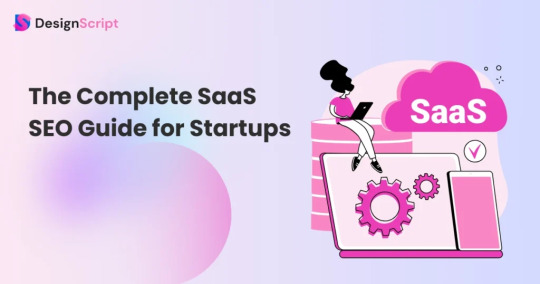
1. Understanding SEO for SaaS Startups
SEO, or Search Engine Optimization, is the process of enhancing your website's visibility on search engines like Google, Bing, and Yahoo. For SaaS startups, SEO involves optimizing various elements of their online presence to rank higher in search results and attract organic traffic.
2. The Importance of SEO for SaaS Businesses
SEO is not just an option; it's a necessity for SaaS businesses. It's the key to increasing brand awareness, driving qualified leads, and ultimately boosting revenue. With a solid SEO strategy, SaaS startups can establish themselves as industry leaders and gain a competitive edge.

3. Choosing the Right SEO Agency
Selecting the best saas SEO agency for your SaaS startup is crucial. Look for a company with a proven track record of success in the SaaS industry, a deep understanding of your target audience, and a commitment to staying updated on the latest SEO trends and algorithms.
4. Tailoring SEO Strategies for SaaS
SaaS startups have unique needs when it comes to SEO. Your strategy should focus on highlighting the benefits and features of your software, targeting relevant keywords, and creating compelling content that resonates with your audience.

5. Leveraging Content Marketing
Content is king in the world of SEO, and for SaaS startups, it's no different. Invest in creating high-quality, informative content that addresses the pain points of your target customers and showcases the value of your solution.
6. Harnessing the Power of Keywords
Keywords are the foundation of any successful SEO strategy. Conduct thorough keyword research to identify terms and phrases that your target audience is searching for, and incorporate them strategically into your website content, meta tags, and URLs.
7. Optimizing User Experience
User experience plays a significant role in SEO rankings. Ensure your website is mobile-friendly, fast-loading, and easy to navigate. Create engaging, user-friendly content that keeps visitors on your site longer and encourages them to explore further.

8. Embracing Technical SEO
Technical SEO involves optimizing the backend of your website to improve its search engine visibility. This includes tasks like optimizing page speed, fixing broken links, and implementing schema markup to enhance rich snippets in search results.
9. Tracking and Analyzing Performance
Regularly monitor your SEO performance using tools like Google Analytics and Search Console. Track key metrics like organic traffic, keyword rankings, and conversion rates to identify areas for improvement and measure the success of your efforts.
10. Staying Ahead with Ongoing Optimization
SEO is not a one-time task; it requires ongoing optimization and refinement. Stay updated on industry trends and algorithm changes, and continuously tweak your strategy to adapt to evolving search engine algorithms and user behaviors.

Conclusion
In conclusion, mastering SEO is essential for SaaS startups looking to achieve sustainable growth and success in the competitive digital landscape. By partnering with the best saas SEO agency and implementing tailored strategies, you can unlock the full potential of your SaaS business and rise above the competition.
FAQs: Frequently Asked Questions
1. What makes SEO crucial for SaaS startups?
SEO is crucial for SaaS startups because it helps increase brand visibility, drive qualified leads, and ultimately boost revenue.
2. How do I choose the right SEO agency for my SaaS startup?
When choosing an SEO agency, look for one with a proven track record in the SaaS industry, a deep understanding of your target audience, and a commitment to staying updated on the latest SEO trends.
3. How often should I update my SEO strategy?
SEO is an ongoing process, so it's essential to continuously monitor and update your strategy to adapt to changes in search engine algorithms and user behavior.
4. What role does content marketing play in SEO for SaaS startups?
Content marketing is crucial for SEO as it helps attract organic traffic, establish thought leadership, and engage with your target audience by providing valuable, informative content.
5. How can I track the performance of my SEO efforts?
You can track the performance of your SEO efforts using tools like Google Analytics and Search Console, which provide insights into key metrics such as organic traffic, keyword rankings, and conversion rates.
0 notes
Text

Revolutionizing Digital Success: The Ultimate Guide to Choosing a SaaS SEO Company
0 notes
Text
What is ERP and how can it be implemented in a manufacturing company?
ERP, or Enterprise Resource Planning, is a software suite designed to improve the efficiency, productivity and profitability of a company. ERP systems aim to automate many of the day-to-day processes of a business, such as accounting, inventory management, customer service and supplier relationships. By streamlining and integrating these key business processes, ERP can improve the overall performance of an organization.
For a manufacturing company, ERP can be used to streamline and automate many of its operations. ERP can be used to integrate the different departments in the company, such as procurement, inventory control, production, finance, and sales. This integration allows for more effective communication and collaboration between teams, resulting in improved efficiency and productivity. ERP can also be used to manage supply chain management, giving the company greater control over its suppliers and their deliveries.
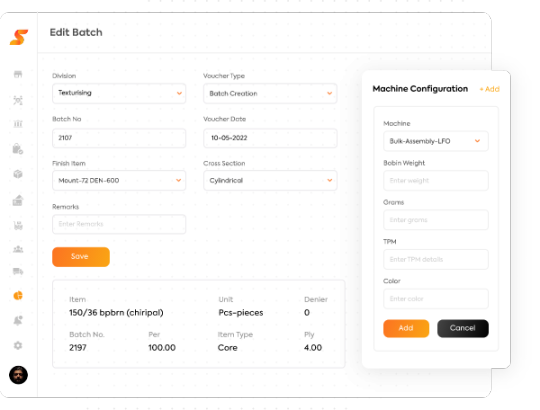
ERP can also be used to improve the accuracy of data, allowing for better decision making. By tracking data from different departments and using advanced analytics, ERP can give a company a better understanding of its performance and identify areas for improvement. ERP can also be used to create detailed reports and give the company an accurate view of its operations.
Implementing ERP in a manufacturing company requires careful planning and execution. Companies must consider their specific needs and goals before selecting and implementing an ERP system. Once the system is in place, companies must ensure proper training is provided to staff and that the system is regularly monitored and updated. Companies must also ensure they are following the laws and regulations related to data security and privacy. By taking these steps, manufacturing companies can enjoy the benefits of ERP and improve their operations.
#ERP Software for zari manufacturer#ERP Software for zari manufacturing#erp software for yarn texturizers#erp software for yarn traders#erp software for yarn dyers#erp software for yarn management#accounting software for textile#erp software yarn manufacturers#erp software for purchase management#erp software for sales management#stringerp
0 notes
Text
Textile ERP software
Textile ERP software is a type of enterprise resource planning (ERP) software specifically designed for the textile industry. This software helps textile companies manage their operations, from sourcing raw materials to delivering finished products, by integrating various business processes and functions into a single system.
Some of the key features of textile ERP software include:
Material management: To manage the procurement and inventory of raw materials, such as fibers, yarns, and fabrics.
Production planning and control: To plan and control the production process, from raw material to finished product.
Sales and distribution management: To manage sales activities and distribution, including order management, invoicing, and shipping.
Financial management: To manage financial operations, such as accounting, budgeting, and reporting.
Quality control: To ensure that products meet quality standards and customer requirements.
Textile ERP software can help textile companies increase efficiency, improve visibility into operations, and make better-informed decisions. When choosing textile ERP software, it is important to consider the specific needs and requirements of your organization and to choose a solution that is well-suited to your industry.
#accounting software for textile#erp software for purchase management#erp software for sales management#ERP Software for zari manufacturer#ERP Software for zari manufacturing#erp software for yarn texturizers#erp software for yarn traders#erp software for yarn dyers#erp software for yarn management#erp software yarn manufacturers
0 notes
Text
ERP software for yarn management
Welcome! Evernote is your all-in-one solution for productivity: it’s where your notes, to-dos, schedule, and important documents all come together. Let’s start by planning your day inside this note, and you’ll be one step closer to your goals.
Most knitters and crochets are well aware of the many benefits of using yarn. As the name suggests, yarn is a strip of fiber that you can use to make clothes or other textile products. It is usually associated with being lightweight and air- or water-permeable. However, there is more to yarn than meets the eye. It can be a useful tool for artists, designers, and others who want to make unique products. This article will tell you about some of the best erp software solutions available for yarn management. It will also teach you some essential knowledge about this versatile fiber that you might not know.
Yarn Management With Stringerp

Yarn management is relatively a new area of business, and it was only invented about 100 years ago. For most of human history, different countries and continents had their own names for the various threads used in making clothes and other textile products. However, it was not until the 20th century that cotton, wool, and other fibers started becoming more commonly used. This is when the idea of utilizing different colors and strengths of yarn grew in popularity. Today, there are specific colors designated for specific uses. For example, there is bright white yarn and regular white yarn. The former is suitable for use in making clothes while the latter is more suitable for use in making artificial flowers and wreaths.
Why Stringerp?
If you are looking for an Erp software solution to help you manage your yarn, then you should consider Stringerp. They are one of the oldest suppliers of erp software for yarn management on the market. They currently have over 100,000 clients around the world, and they serve over 500,000 individual businesses. The company's software is built on the principles of being secure, fast, and user-friendly. This is combined with the functionality of being able to track orders, monitor invoices, and export and import data.
What Is Order Taking And How Does It Work?
Order taking is where you enter the details of your upcoming orders. It is a very important part of the software, as it serves as the foundation for the entire system. When you first log in to the program, you will see the standard screen that usually comes with any Erp software. From here, you can either enter a shopping cart, which will track all the goods you add to your order, or you can manually type in the items. If you decide to go the manual route, you will have to input the quantity for each item as well as the unit price. When you are finished, click the Confirm button, and the order will be placed.
What About Tracking?
Tracking is very important, as it helps you keep track of your suppliers and products. You can choose to either use barcodes or Radio-Frequency Identification (RFID) for tracking, but the choice is up to you. Barcodes are universal and easy to use, but they can only be scanned using a barcode scanner or other similar device. The RFID tags are embedded in the items to be tracked, so they are easily identifiable by reading them with a RFID reader. This makes them more secure and allows for more accurate tracking.
Setting Up Invoices And Paying Bills
Invoices are important, as they help you keep track of your sales and billing information. You can set them up to be automatically generated from your order taking, or you can create them manually. When you have generated an invoice, you can either print it or download it as a friendly PDF document. You can also set a grace period before bills are due, and the system will remind you when payments are due.
What About Product And Vendor Management?
This is where you keep track of the products you have in stock and ready to ship as well as those that are awaiting approval from a vendor or customer. Depending on your configuration, you can either enter the product information manually or search for it using an inventory management software tool. For example, you can use the Barcode Scanner to scan in either direction:
Up: To enter product info for a product that is already in stock, or
Down: To enter product info for a product that you have in hand.
The advantage of this feature is that you do not have to worry about double-entry bookkeeping. Simply enter the item at the top of the list, and the system will automatically populate the remaining cells with product information.
Importing And Exporting Data
This is where you can efficiently transfer data to and from other systems and applications. The best part is that you can synchronize data across multiple platforms, so that everyone involved in the operation has the same version of the facts.
Secure And Simple To Use
This is one of the major selling points of this particular software. Stringerp has designed their system with the security of the user in mind. There are 2 main ways to secure your data: 1) Use a unique username and password for every user; 2) Use a secure hash algorithm for generating your passwords. The first step in logging in is to type in your username and password, and then click the Login button. From here on out, you will be backed-up with a dashboard, which displays all the important information related to your orders and accounts. It is very user-friendly and accessible.
You can also take a peek at the Help section of the software if you are stuck or unsure on how to use certain features. The String ERP is also available 24/7 via Live Chat, email, or phone call. This way, you can get your questions answered promptly and help is never more than a click away.
#ERP Software for zari manufacturer#ERP Software for zari manufacturing#erp software for yarn texturizers#erp software for yarn traders#erp software for yarn dyers#erp software for yarn management#accounting software for textile#erp software yarn manufacturers#erp software for purchase management#erp software for sales management
0 notes
Text

In manufacturing industries, reporting is an essential part of the process. Reports help companies track production, quality, and other metrics important for success. They also provide visibility into operations and can be used to identify areas of improvement. Reports are typically created by collecting data from various sources. Reports can include various information, such as production volumes, defects, downtime and costs. Management typically uses them to make decisions and plan for the future. By providing valuable insight into the performance of the business, reports can help companies to remain competitive and successful.
#reporting using stringerp#stringerp#reporting#erp software for reporting#textile erp reporting#erp reporting tools#easy reporting#easy reporting tools
0 notes
Text

As an integrated system, textile ERP software allows users to easily manage the entire production process. This includes managing inventory levels and tracking production quality. It provides users with real-time inventory updates, allowing them to quickly and accurately monitor stock levels and adjust production schedules accordingly. Additionally, users can monitor production costs in real-time and adjust pricing strategies to ensure profitability.
#textile erp infographics#erp infographics#textile erp infographic features#erp software for textile#stringerp
0 notes
Text
In the textile industry, it's important to be as professional as you can. And that's why we at String started our company with a set of software technologies to empower the whole string fabric business. The software is cloud-based which offers all flexibility as you can easily change to different clients, users, settings and data, whenever and wherever. String ERP software for yarn traders is a one-stop solution looking forward to introducing seamless surveillance and automation into their core business processes.
#Erp Software for yarn traders#Spinning mill ERP software#Textile Weaving ERP software#Textile ERP software#Textile ERP software India#Textile industry software solutions#String ERP
0 notes
Text
Accounting software for textile | Textile Accounting Software
Professional software solution for small and medium-sized enterprises (SME) accounting and administration. Manage all finance data in real-time, receive and process invoices, credit notes, and purchase orders, and generate accounting and financial reports and documents. increases accuracy and minimizes manual entry times by recording data entries from string erp accounting software for textile in a few simple seconds with our professionally installed and maintained version of ‘string accounting software for textile.
Know more about Textile Accounting Software
#Accounting software for textile#Textile Accounting Software#Best Accounting Software for Textile industry in india#Best Accounting Software for Textile industry#accounting software for textile business
0 notes
Text
ERP software for purchase management
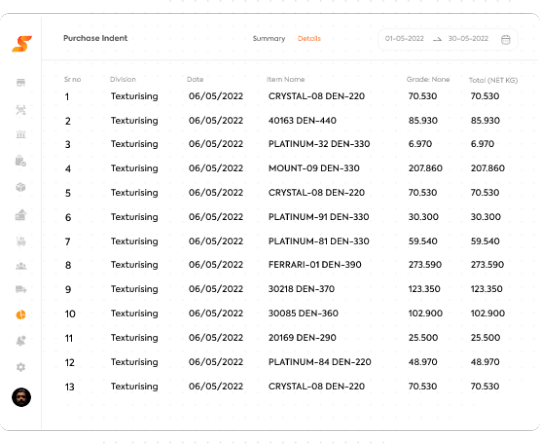
As a textile manufacturing company, your focus may well be on new product development and the manufacturing process. But, without careful planning and execution, all that effort can quickly be undone by poor order management and ineffective purchasing.
When it comes to textile manufacturing, the regulatory environment is changing.
Traditional textile manufacturing studies are now being superseded by more modern and less burdensome approaches. New data, such as clinical endpoint trials and real-world evidence, are providing unprecedented insight into how products are performing in the real world and ensuring that patients benefit from new medications.
Traditional trial and error approaches to drug development are now being superseded by an era of predictive medicine. This is driving a new requirement for companies to seek approval not just for a new drug, but for its dosage and treatment plan as well.
Why purchase management software is important
Poor order management and ineffective purchasing undermine a company's capacity to manufacture its products and bring them to market. It also has the potential to significantly impact a company's bottom line. Order management software can help reduce redundant tasks, remove the potential for errors, and ultimately increase the efficiency of the entire process.
Related : ERP software for purchase management
Let's take a look at how.
An order can't be placed until it's approved
If you've ever tried to order a product that's not available in your area, you'll know how frustrating it can be to find a salesperson with the authorization to place that order only to be told that the order can't be approved until it's received at the office. This is both inefficient and leads to missed opportunities. For these reasons, most businesses operate in what's known as a closed-loop system. That is, they only order what they need and approve all orders before they are fulfilled.
In a closed-loop system, there are clearly defined roles and responsibilities for each party. In the case of a textile manufacturing company, the Product Manager ensures that all necessary information is provided to the purchasing department. The Purchasing department reviews the information and makes the necessary purchasing decisions in coordination with the Medical department. The Manufacturing department is then responsible for producing the products in accordance with those decisions.
In an open-loop system, on the other hand, there is more of a free-for-all approach. That is, no specific roles are defined and anyone within the organization can choose to step in and assume some responsibility for fulfilling an order. While this might seem like a good idea at first, in practice, it's extremely unproductive. There is little to no synchronization between the different parts of the organization resulting in inefficiencies and errors down the line.
For example, in an open-loop system, if the Sales department doesn't have the requested product in stock, they'll either send someone to the store to buy it or place an order with another company. But when that order is processed, there's no way to know if it was done correctly since there is no process in place for reviewing orders. This is why most organizations default to a closed-loop system when it comes to placing large or urgent orders.
What is most important is that all of this happens with as little friction as possible. When you have a closed-loop system in place, this is much easier to achieve. Even small details, like the way the purchase order is marked as completed when the item is delivered or how it is indicated that an order was canceled due to lack of product, can make a big difference in terms of efficiency and the overall experience of the customer.
The same way a car buyer expects to receive a delivery of a new vehicle within a couple of days, a textile manufacturing customer expects to see evidence that their order was fulfilled and that their questions have been answered about the product they purchased.
Paper is cluttered with errors
A large number of orders can easily overwhelm a small team of order processors working in a manual environment. In addition, if the process isn't streamlined and there aren't defined roles, information can easily be misread or lost in the shuffle.
By definition, paper is slow and error-prone. It takes time to verify information and it can't be tracked or revised like a database entry. As a result, discrepancies often arise between what was intended and what was actually printed out. These errors lead to more rework on the part of the people processing the order and more time wasted overall.
When the order is finally processed and completed, you'll often find that it was printed a couple of times, some of the items were in short supply, and some were not delivered as promised. All of this is a direct result of the disorganization that afflicts all areas of the organization during periods of high workload.
Inventory management headaches
Inventory management is often considered a part of overall order management, but it has its own headaches as well. While the previous point focused on the order, this one is about the items themselves. Specifically, how to track and monitor the quantities of each and every item in a consistent and reliable manner.
Some textile manufacturing companies track inventory using very basic methods. They might use an Excel spreadsheet to keep track of the quantity of each item on hand. But as soon as there's any sort of variance between what's on the spreadsheet and what's in reality, all hell breaks loose. This can lead to overstocking, which can cause serious problems when it comes time to fulfill additional orders. It also makes it very difficult to know if any of the products are running out and whether any planned orders should be adjusted.
Other companies use a barcode-based system to keep track of what's in each spot. These types of industries have a long history of using barcodes and scanners to keep track of inventory. But barcodes can get easily confused with other similar items and the overall process is very prone to errors. This is why many business owners avoid using them altogether.
What is important in terms of inventory management is that you have a reliable way to determine how much of each product you have in stock at any given time. Otherwise, you'll always be operating on a guessing game when it comes to inventory levels. This is why most industries avoid using a rough rule of thumb when it comes to inventory levels and opt for using a proper accounting method.
Real-world evidence is critical
textile manufacturing companies now have access to an unprecedented amount of information about their products. They can examine real-world data like clinical trials and compare this to the results from similar studies.
In addition, many textile manufacturing companies have adopted a global approach to research, enabling them to examine data from all around the world and discover trends and patterns that would have otherwise been hidden from view. By acting as a hub for data collection, aggregation, and analysis, companies can gain unprecedented insight into how their products perform in real life and identify improvements that can be made.
While all of this might seem like a positive development, it can also be a major headache if proper guidelines aren't followed and the right decisions aren't made based on the information available. It's one thing to have all of this information, but it's another to know how to make effective use of it. This is where order management software can play an important role by aggregating, analyzing, and presenting all of this data in a simple and actionable manner.
With the right software in place, the right analysis can quickly be performed and valuable insights can be gained from the resulting data. This has the potential to significantly reduce the trial and error approach to new drug development and bring us closer to a more accurate predictive medicine.
#erp software for purchase management#purchase management erp software#erp in purchasing management#purchase order process in erp#erp system
0 notes
Text
Yarn dyeing is a highly specialized and very technical process that requires a great deal of research and skill to perform efficiently. The need for consistency and process optimization has increased as yarn colors & dyeing techniques are expanding rapidly. With the world's top Zari manufacturers as their clientele, String ERP software for yarn dyers enables a true "One-Stop Shop" of Zari fabric manufacturing with its web-based, real-time functionality and hassle-free operation.
#erp software for yarn dyers#erp software for yarn traders#erp software for yarn texturizers#erp software for yarn management#accounting software for textile
0 notes
Text
Get real-time analysis of the on-hand inventory of raw material and finished goods with an easy-to-use String ERP software. The program uses your raw materials as well as finished products to give you an instant breakdown of your stock. String ERP software for yarn texturizers gives you a view of the financial and physical state of your operations as well as the flow of raw materials to final products. With String ERP, your operations are easy to manage and efficient which means that you can concentrate on business.
#erp software for yarn texturizers#erp software for yarn traders#erp software for yarn dyers#erp software for yarn management#accounting software for textile#erp software yarn manufacturers#erp software for purchase management#erp software for sales management#ERP Software for zari manufacturer#ERP Software for zari manufacturing
0 notes